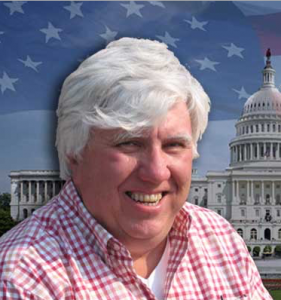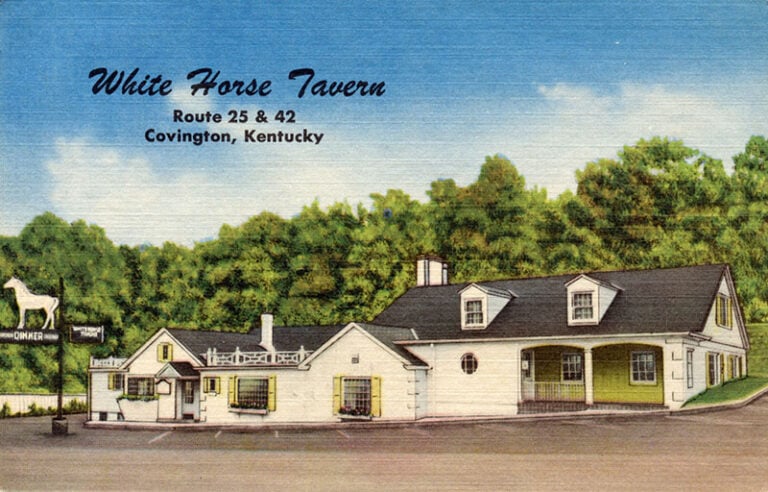Senate Republican Leader Mitch McConnell is notorious for playing things close to the vest. This is the man who, after all has suffered the slings and arrows of his former BFF, erstwhile President Donald J. Trump, without uttering a peep. He follows the age-old precept of say nothing unless it improves the silence.
The Louisville lawmaker has always seemed especially mute when it comes to the touchy issue of race, lest an offhand remark produce a political storm contrary to his party’s interests.
 The NKyTribune’s Washington columnist Bill Straub served 11 years as the Frankfort Bureau chief for The Kentucky Post. He also is the former White House/political correspondent for Scripps Howard News Service. A member of the Kentucky Journalism Hall of Fame, he currently resides in Silver Spring, Maryland, and writes frequently about the federal government and politics. Email him at williamgstraub@gmail.com
The NKyTribune’s Washington columnist Bill Straub served 11 years as the Frankfort Bureau chief for The Kentucky Post. He also is the former White House/political correspondent for Scripps Howard News Service. A member of the Kentucky Journalism Hall of Fame, he currently resides in Silver Spring, Maryland, and writes frequently about the federal government and politics. Email him at williamgstraub@gmail.comSo it was a little odd to learn ol’ Mitch was lead signatory on a letter to Education Secretary Miguel Cardona, joined by about three dozen of his GOP cohorts, urging the Biden administration to shelve efforts to create school programs focusing on the nation’s centuries-long experience with systemic racism.
The letter, sent under a U.S. Senate letterhead, maintained the proposal represents “a politicized and divisive agenda.”
“Families did not ask for this divisive nonsense,” the letter read. “Voters did not vote for it. Americans never decided our children should be taught that our country is inherently evil.”
The letter further took a poke at the Pulitzer Prize-winning 1619 Project, initiated by The New York Times, which places an emphasis on slavery as a controlling factor in the ongoing American experience. The 1619 reference is in regard to the year slaves were first transported to the Jamestown colony.
McConnell and the others referred to the 1619 Project as “this debunked advocacy.” Any educational program derived from it therefore “would not focus on critical thinking or accurate history, but on spoon-feeding students a slanted story.”
As if that weren’t enough, McConnell expounded further on the 1619 issue at a news conference in Louisville on Monday, asserting that the project shouldn’t be “the core underpinning of what American civic education ought to be about.”
“There are a lot of exotic notions about what are the most important points in American history,” McConnell said. “I simply disagree with the notion that The New York Times laid out there that the year 1619 was one of those years.”
This scenario choreographed by McConnell is curious from any number of perspectives. The first, and most obvious, centers on how can Mitch McConnell, a smart guy despite his extensive list of faults, possibly think 1619 is not an important date in American history, considering that the nation continues to deal with the aftereffects of the “peculiar institution” to this very moment?
The year 1619 ranks right up there with 1776 when America declared its independence from Britain, 1861 with the onset of the Civil War and 1941 with the attack on Pearl Harbor. It should stand out for everyone. Is McConnell sincere in telling 40 million African-Americans that 1619 is a mere bag of shells? Or insisting that the impact of slavery on the United States in the past and today isn’t a fit notion for study?
This controversy isn’t the first time in recent weeks McConnell has stuck his finger in the air to determine the direction in which the racial winds are blowing. In early April he rose to defend recent changes in Georgia voting laws that any number of advocates, led by Stacey Abrams, who unsuccessfully ran for governor of the Peach State as a Democrat in 2018, maintain were obviously intended to suppress the Black vote.
There’s something percolating below the surface. There is a reason McConnell stepped into the messy issue of race after spending most of a career trying to avoid it. Whatever the rationale, you can bet that power, money and culture are playing a major role in the mix.
To this point in his career, McConnell has been portrayed as a moderate, at least for a Republican, on racial issues, even though his voting record belies any deep-bedded sympathy for the Black cause. That is established by a voting record that the NAACP consistently cites as a failure in its annual Civil Rights Legislative Report Card. During the first session of the 116th Congress in 2019, McConnell voted for the organization’s position on “bread and butter civil rights issues and priorities” a meager 7 percent of the time.
That’s not an aberration, by the way. The NAACP has given the Republican leader’s voting record a failing grade for years on end.
It should be noted McConnell isn’t an overt racist like his ex-pal Trump. And he says all the right things, claims to support civil rights, honors and praises Martin Luther King Jr., was on hand for the signing of the Civil Rights Act of 1964. But his voting record reveals him to be what is popularly termed a one-hit wonder.
In 1986, his second year in the upper chamber, McConnell was among 31 Republicans who voted to override then-President Ronald Reagan’s veto of legislation imposing economic sanctions on the apartheid government of South Africa, before the arrival of President Nelson Mandela, insisting that the U.S. had “waited long enough” to exert pressure on the openly racist nation.
And ol’ Mitch has been citing that vote as evidence of his good faith ever since. Like Zager & Evans, the ultimate one-hit wonders who have lived off “In the Year 2525″ (number one with a bullet) since 1969 with nary a follow-up coming within a million miles of Casey Kasem’s Top 40, McConnell rests on that anti-apartheid vote as evidence of his civil rights bona fides 35 years later despite little dedication to the proposition at hand.
Now, it should be noted that despite how sincere Ol’ Mitch might be to civil rights in general, he’s much more dedicated to power and money. If that means acting to the betterment of the Republican Party results in detriment to African-Americans, so be it.
Republicans, and McConnell, are continually chiding Democrats for subscribing to identity politics – the custom of reaching out to various segments of voters based on skin color, religion and similar characteristics. The Democratic Party, which directs a substantial amount of time to courting Black and Latino voters, for instance, is considered to be practicing identity politics.
The thing is the Republican Party practices identity politics every bit as much as the Democrats. The difference is the segment of the population they target is white people, particularly white men of a mature age. An overwhelming amount of Trump’s support came from white men and it now constitutes the GOP base.
While topics like taxes and infrastructure are important to white folks, they are particularly swayable when it comes to cultural issues. A number of studies in recent years have determined that white folks are concerned about losing their privileged status in society since it’s been shown their numbers will fall below 50 percent of the population sometime in the 2040s.
As of 2019, Non-Hispanic White Americans constituted 69 percent of the total electorate. It’s probably a bit smaller now but still substantially larger than any other group. Republicans need these folks in the voting booth as well as their ability to reach in them jeans and pull out them greens. Knocking down initiatives that might otherwise benefit Black and Latino voters in order to maintain white privilege might prove ugly but, in their view, necessary to maintain the status quo.
The Republican Party desperately needs these folks and they play to their insecurities. The Lexington Herald-Leader published a story by political writer Daniel Desrochers about an appearance by Sen. Rand Paul, R-Bowling Green, in Somerset this week where he told his audience – Pulaski County is more than 97 percent White – that the public is being given a message that “white people are terrible.”
Noting that Atlanta-based corporations like Coca-Cola and Delta Airlines criticized the new Georgia voting law, Paul added, “We’re now told the whole country is crumbling, we should teach about how white people are terrible. How Coca-Cola says you need to bow down and say ‘I am white and I’m sorry…’ but it all gets back to this sort of narrative that it’s a bad place. We’re not a bad place. I think we’re a good people.”
So, through all this, we find Addison Mitchell McConnell’s true purpose. The silent GOP slogan for the 2022 election will be “Defend White People.” And a lot of people will fall in line.


















Sure wish Richard was right. But the conduct Bill writes about in this column is the best evidence one can find of widespread, if not systemic, racism — enough to persuade many GOP leaders to forsake their party’s legacy and base their re-election hopes on appeals to the worst race-based fears of working white folks.
Bill has lost his marbles this time.
One needs only to check out the economics conditions of neighborhoods in the Cincinnati/NKY region,
income and educational disparities in the region, and know that systemic racism is still with us. The recent best seller CASTE by Isabelle Wilkerson has examples galore of how enslavement in this country still has an imprint on the inequities in housing, education, jobs and income of minorities today. We cannot bury that history,